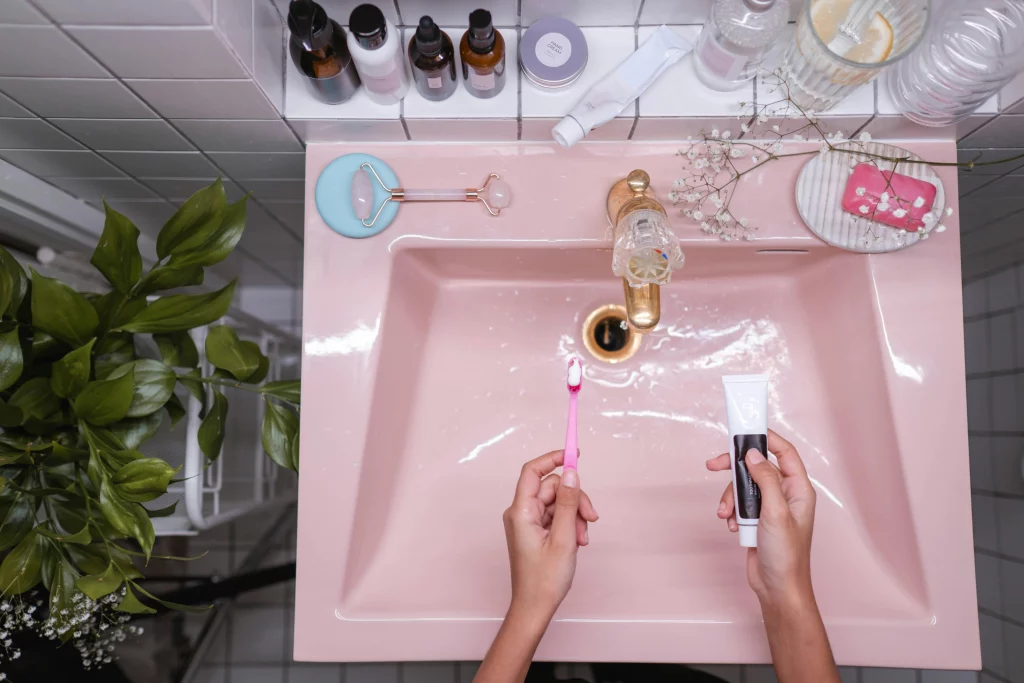Charcoal toothpaste has rapidly gained traction in the oral care market, garnering attention both from consumers seeking whiter teeth and from dental professionals scrutinizing its claims. The product’s popularity is evident across social media platforms, where anecdotal endorsements abound. Proponents praise its apparent ability to remove surface stains and provide a notably fresh sensation, while skeptics including many in the dental field question the scientific legitimacy of these assertions and raise concerns about potential risks, such as enamel abrasion and gum irritation.
This article seeks to provide a balanced, research-based overview of charcoal toothpaste. It will examine the mechanisms by which activated charcoal may interact with dental enamel and oral biofilms, assess the credibility of whitening claims, and address reported side effects. Furthermore, the discussion will incorporate current expert guidelines on the use of charcoal-based oral care products. Whether you are considering incorporating charcoal toothpaste into your personal regimen or simply wish to understand the phenomenon from a scientific perspective, this comprehensive review aims to support informed decision-making regarding your oral health.
What is Charcoal Toothpaste?
Activated charcoal toothpaste is formulated with a processed form of carbon known for its exceptionally high surface area and absorbent properties. This characteristic enables it to attract and bind various particles, including toxins, chemicals, and superficial stains. Historically, activated charcoal has played a significant role in emergency medicine, particularly in the treatment of poisoning and drug overdoses, due to its notable ability to absorb harmful substances. Its effectiveness in medical settings has prompted interest in its application within personal care products, especially those marketed with claims of cleansing, purification, and detoxification.
More recently, activated charcoal has been incorporated into oral care products and promoted as a natural alternative for teeth whitening and impurity removal. The premise is that the charcoal can adhere to stain-causing compounds derived from dietary sources or tobacco use, thereby lifting them from the tooth surface and enhancing dental brightness without resorting to peroxide or other aggressive bleaching agents.
Charcoal toothpaste is visually distinctive, typically presenting as a black or dark gray paste, which contrasts sharply with traditional dental products. Its gritty consistency and emphasis on natural ingredients have contributed to its appeal among consumers seeking holistic or alternative oral care options. Nevertheless, the same abrasive quality that can remove stains may also pose risks to dental enamel over time, highlighting the importance of evaluating both the potential benefits and drawbacks before incorporating charcoal toothpaste as a routine oral hygiene product.
The Rise of Charcoal in Oral Care
Over the past decade, charcoal toothpaste has witnessed a remarkable rise in popularity, largely propelled by the influence of social media platforms and endorsements from prominent online figures. Its distinctive black color and unconventional composition have contributed to its visibility in the oral care market, particularly among individuals seeking alternatives to conventional whitening products. The broader movement toward “clean beauty” and natural wellness further amplified interest in charcoal-based toothpastes, positioning them as a fashionable and seemingly holistic option for oral hygiene.
Many consumers are drawn to charcoal toothpaste for its:
Natural appeal – With many formulas free from artificial dyes, fluoride, or harsh chemicals, it aligns with the desire for a more organic and eco-friendly approach to oral care.
Whitening claims – Its ability to remove surface stains caused by coffee, tea, red wine, and smoking gives it strong cosmetic appeal.
Deep cleansing effect – Activated charcoal is known for absorbing impurities, bacteria, and toxins, which many believe leads to fresher breath and a cleaner mouth.
While charcoal toothpastes may be gaining popularity, dental experts remain cautious. Some formulations are excessively abrasive, which can harm enamel if used daily. Others lack fluoride, the essential component for cavity prevention or include additives with little scientific backing. The advertised benefits may seem appealing, but evidence on long-term safety and efficacy is still pretty limited. In light of this, it’s wise for individuals to approach these products thoughtfully and consult dental professionals before making changes to their oral care routine.
How Does Charcoal Toothpaste Work?
Activated charcoal toothpaste primarily functions through a mechanism known as adsorption, which should not be confused with absorption. In this process, molecules such as stains, toxins, and bacteria adhere to the surface of activated charcoal particles. Due to its porous structure and significant surface area, activated charcoal can effectively bind with compounds responsible for tooth discoloration, halitosis, and certain oral bacteria.
When applied during brushing, the charcoal particles interact with substances on the enamel that cause staining, potentially facilitating their removal and leading to a brighter appearance. Additionally, the mildly abrasive nature of charcoal may contribute to the mechanical removal of plaque, surface debris, and residual food particles.
While these effects may result in a sensation of cleanliness and improved aesthetics, it is important to recognize that the benefits are largely restricted to superficial changes. Charcoal toothpaste does not provide deep whitening or cavity prevention. Moreover, excessive abrasion from improper or frequent use could compromise enamel integrity, underscoring the necessity for careful and moderate application.
Potential Benefits of Charcoal Toothpaste
Charcoal toothpaste has surged in popularity recently, capturing consumer interest with its distinctive black appearance and purported “natural” benefits. Marketed as a chemical-free solution for achieving a whiter smile, it’s no surprise that many individuals have integrated it into their oral care routines. Yet, despite widespread enthusiasm and social media promotion, questions remain regarding its actual effectiveness. This analysis considers the reasons behind charcoal toothpaste’s widespread appeal, as well as the current evidence regarding its purported advantages.
Surface Stain Removal
Charcoal toothpaste has gained popularity for its reported effectiveness in removing surface stains associated with common consumables like coffee, tea, red wine, and tobacco. The substance’s adsorptive properties allow it to attach to pigmented particles and facilitate their removal from the enamel. A number of individuals observe visibly whiter teeth after only a few uses, despite the absence of conventional chemical whiteners. It is important to note, however, that the whitening effect appears to be primarily limited to external discoloration. Deeper, intrinsic stains are largely unaffected by charcoal toothpaste. Results may vary depending on the individual, but the product remains a widely chosen option among those seeking a quick and “natural” enhancement in dental brightness.
Odor Absorption
Activated charcoal has gained attention for its potential to mitigate oral malodor by binding to and sequestering odor-causing compounds within the oral cavity. By adsorbing bacteria and various toxins, it may contribute to the reduction of volatile sulfur compounds and other substances associated with halitosis. Users often report a perceptible improvement in breath freshness following the use of charcoal-based toothpastes, particularly among individuals with persistent bad breath. Nonetheless, it is important to emphasize that activated charcoal should not supplant established oral hygiene practices such as brushing, flossing, and tongue cleaning. While charcoal toothpaste may serve as a supplementary measure for odor control, the long-term efficacy regarding breath freshness has yet to be validated through comprehensive clinical research.
Natural Ingredients
Charcoal toothpaste has gained traction among individuals seeking a more natural alternative to traditional oral care products. Unlike many mainstream toothpastes, these formulations typically omit synthetic whitening agents, artificial dyes, and harsh detergents, making them appealing to those with sensitivities or who prefer minimalist ingredient lists. Additionally, many charcoal toothpastes incorporate other natural components, such as coconut oil, baking soda, or essential oils, which are intended to promote a sense of freshness. While the label “natural” does not inherently guarantee greater efficacy, the straightforward composition of these products resonates with health-conscious consumers.
Mild Abrasive Cleaning
Charcoal toothpaste contains fine, gritty particles that act as mild abrasives during brushing. This abrasiveness assists in removing plaque and surface debris more effectively than some standard toothpastes, potentially contributing to improved oral cleanliness, healthier gums, and fresher breath. Still, it is crucial to exercise caution. Overuse or excessive abrasiveness can erode dental enamel over time, which may compromise tooth integrity. Therefore, selecting a charcoal toothpaste with a balanced level of abrasiveness is essential to maintain both oral hygiene and enamel health.
Risks and Concerns: What Dentists Say
Charcoal toothpaste has certainly caught the public’s attention, largely due to its “natural” branding and claims of whitening. Still, dental experts express significant reservations. For one, these products vary widely in their composition, some are quite abrasive, which can erode enamel over time. That’s hardly ideal for long-term oral health. Moreover, many charcoal toothpastes lack fluoride, a crucial ingredient for preventing cavities. Given these points, dental professionals encourage consumers to weigh the risks before adopting charcoal toothpaste as a staple in their oral hygiene regimen. It’s prudent to take into account both the potential drawbacks and the current professional guidance on this trend.
Enamel Abrasion
Dentists express legitimate concerns regarding the use of charcoal toothpaste, primarily due to its abrasive properties. While the charcoal particles may assist in removing surface stains, excessive use or overly vigorous brushing can contribute to the gradual erosion of dental enamel. This enamel loss not only increases tooth sensitivity but also results in a more yellow appearance, as the underlying dentin becomes exposed. Furthermore, compromised enamel renders teeth more susceptible to cavities and decay. Consequently, dental professionals advise caution with charcoal toothpaste and do not recommend it as a replacement for standard fluoride toothpaste in daily oral care routines.
Lack of Fluoride
Many charcoal toothpastes currently available lack fluoride, which is a crucial component for maintaining strong and healthy teeth. Fluoride functions by remineralizing enamel, repairing early stages of decay, and providing protection against cavities. The absence of fluoride in these products may leave teeth more susceptible to decay, particularly if charcoal toothpaste is used exclusively over an extended period. This deficiency can negatively affect overall oral health, especially for individuals who are more prone to cavities or enamel erosion. Dental professionals typically advise the use of fluoride toothpaste either alongside or instead of charcoal-based products to ensure adequate and comprehensive dental protection.
Inconsistent Formulations
Charcoal toothpaste sits in a bit of a regulatory gray area, honestly. There’s a noticeable lack of oversight, which leads to a pretty wild range in product quality and safety. Some formulations contain abrasive substances or questionable additives that could actually harm dental enamel, while others don’t have enough activated charcoal to make any meaningful difference. This inconsistency makes it tough for consumers to figure out which products are genuinely safe or effective. Without clear standards in place, people might end up damaging their teeth or missing out on the supposed whitening benefits altogether. It’s wise to stick with reputable brands and, ideally, consult a dental professional before incorporating charcoal toothpaste into your routine.
Limited Evidence on Long-Term Safety
Charcoal toothpaste has become quite popular recently, but, to be honest, there’s not a ton of solid scientific evidence supporting its long-term safety or effectiveness. Most of the positive feedback you’ll find comes from personal testimonials online, not from rigorous clinical trials. Dental professionals remain cautious, since the effects of regular charcoal toothpaste use like potential enamel erosion or gum irritation aren’t fully understood yet. Because of these unresolved questions, many dentists recommend using charcoal toothpaste only occasionally and in conjunction with established oral hygiene products. Honestly, more thorough research is needed before anyone can claim that charcoal toothpaste is a reliable or sustainable choice for daily oral care.
Who Should Use Charcoal Toothpaste?
Charcoal toothpaste presents a potential option for individuals aiming to reduce surface stains and achieve modest, short-term whitening outcomes. Its appeal is particularly notable among those who favor natural oral care products, provided they are cognizant of possible risks. Individuals without pre-existing sensitivities such as tooth sensitivity, gum disease, or dental restorations may tolerate charcoal toothpaste without significant adverse effects. Conversely, those experiencing enamel erosion, tooth sensitivity, or who have dental work should avoid charcoal toothpaste unless advised otherwise by a dental professional. Ultimately, consulting a dentist prior to incorporating charcoal toothpaste into one’s oral hygiene regimen is advisable to ensure both safety and appropriateness for the individual’s specific dental health needs.
How to Use Charcoal Toothpaste Safely
When considering the use of charcoal toothpaste, moderation is crucial. Limit application to no more than two or three times per week, as excessive use may lead to enamel wear and heightened tooth sensitivity. It is advisable to utilize a soft-bristled toothbrush and to brush gently, thereby minimizing the abrasive impact that charcoal can have on both teeth and gums.
Individuals with exposed dentin, enamel erosion, or pre-existing tooth sensitivity should generally avoid charcoal toothpaste, as it may exacerbate these particular conditions. Following use, it is recommended to brush daily with a fluoride toothpaste to reinforce and protect tooth enamel against decay. Additionally, charcoal toothpaste should not be ingested, as regular consumption of activated charcoal may irritate the digestive system.
Finally, prior to incorporating charcoal toothpaste into your oral hygiene routine, consult with a dental professional especially if you have underlying dental concerns to confirm that this product is safe and appropriate for your individual needs.
Alternatives to Charcoal Toothpaste for Bright Teeth

If you find that charcoal toothpaste doesn’t suit your oral health needs or preferences, there are plenty of safe and effective alternatives to help you maintain a bright, healthy smile.
Whitening Toothpaste with Fluoride
These toothpastes are specially formulated with gentle abrasives and enamel-safe whitening agents designed to remove surface stains without damaging your teeth. The addition of fluoride helps strengthen enamel and protect against cavities, making them a balanced choice for daily use.
Professional Whitening Treatments
For more noticeable and longer-lasting results, professional whitening treatments offered by your dentist are highly effective. These customized bleaching procedures use stronger, controlled formulas that safely whiten teeth while minimizing sensitivity and protecting your oral health.
Routine Dental Cleanings
Regular visits to your dental hygienist for cleanings are one of the best ways to keep your smile bright. Cleanings remove plaque, tartar, and stubborn surface stains that at-home brushing can’t reach, helping maintain both oral health and aesthetics.
Natural Remedies
Some people turn to natural methods like rinsing with a baking soda and hydrogen peroxide mixture or practicing oil pulling with coconut oil. These approaches may help reduce stains and improve overall oral hygiene, but it’s important to use them cautiously and not as a replacement for professional care. Always consult your dentist before trying new natural remedies to ensure they’re safe for your teeth and gums.
Final Thoughts: Myth or Miracle?
Charcoal toothpaste occupies a rather nuanced position in dental care discussions; it’s certainly not a panacea, but neither is it entirely without merit. Empirical observations suggest it may assist with removing superficial stains, and its “natural” branding appeals to some consumers. Nonetheless, concerns persist particularly regarding potential enamel abrasion and the absence of fluoride, a mineral integral to dental health. Consequently, charcoal toothpaste should not supplant standard fluoride toothpaste in one’s daily regimen.
It is advisable to consult with a dental professional prior to incorporating charcoal toothpaste into your oral hygiene routine. At GPD Dental, we encourage patients to seek personalized guidance to ensure their dental care choices are both safe and effective.
If you wish to explore evidence-based whitening solutions, please contact GPD Dental to arrange a consultation with our team.
Frequently Asked Questions
1. Is charcoal toothpaste safe for everyday use?
Most dentists advise against using charcoal toothpaste every day because its abrasive particles can gradually wear down tooth enamel. Using it too frequently may lead to increased tooth sensitivity and a higher risk of decay. To protect your enamel, it’s best to limit charcoal toothpaste use to 2–3 times per week. Always alternate with a fluoride toothpaste to strengthen enamel and maintain overall oral health.
2. Can charcoal toothpaste whiten teeth permanently?
Charcoal toothpaste mainly works by removing surface stains caused by coffee, tea, or smoking, but it doesn’t change the natural color of your teeth. For permanent whitening or deeper stain removal, professional dental treatments or specially formulated whitening products are more effective. These options can penetrate beneath the enamel surface to brighten your smile long-term. Therefore, charcoal toothpaste should be seen as a temporary cosmetic aid rather than a permanent solution.
3. Will charcoal toothpaste remove cavities or prevent tooth decay?
No, charcoal toothpaste does not have the ability to prevent or treat cavities. It lacks fluoride, which is the key ingredient for strengthening enamel and protecting against decay. Preventing cavities requires consistent use of fluoride toothpaste along with good oral hygiene habits and regular dental checkups. Charcoal toothpaste should never replace these essential practices.
4. Can charcoal toothpaste harm dental restorations like crowns or veneers?
Yes, the abrasive nature of charcoal toothpaste can scratch or dull the surfaces of dental restorations such as crowns, veneers, or bonding materials. Over time, this can compromise their appearance and durability. If you have any dental restorations, it’s important to consult your dentist before using charcoal toothpaste. They can recommend safer alternatives that won’t damage your dental work.
5. Does charcoal toothpaste help with bad breath?
Activated charcoal may temporarily absorb odor-causing bacteria and compounds, providing short-term freshening effects. However, it doesn’t address the root causes of bad breath, which often require thorough oral hygiene practices. Brushing, flossing, tongue cleaning, and regular dental visits remain the most effective ways to maintain long-lasting fresh breath. Charcoal toothpaste should be considered only as a supplemental measure rather than a primary solution.


